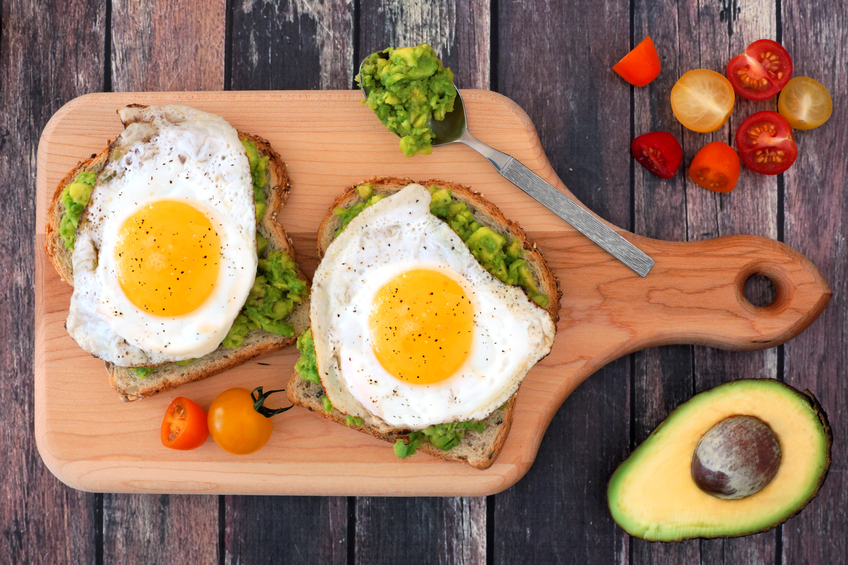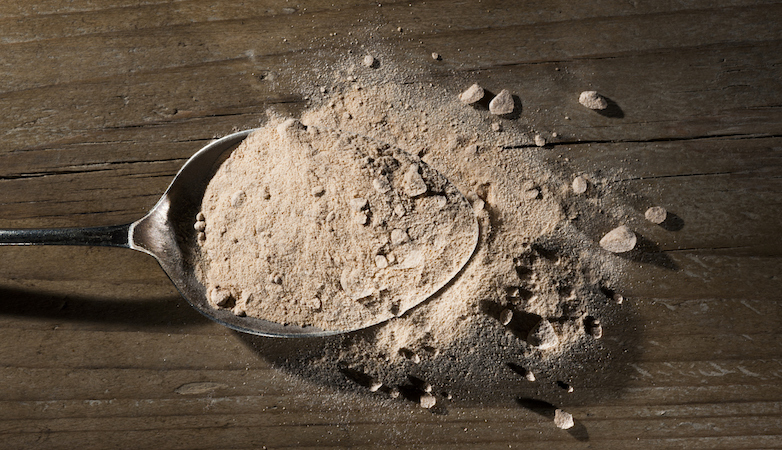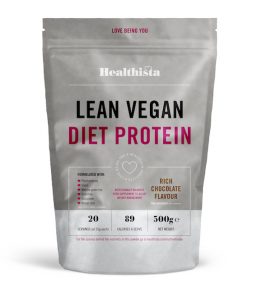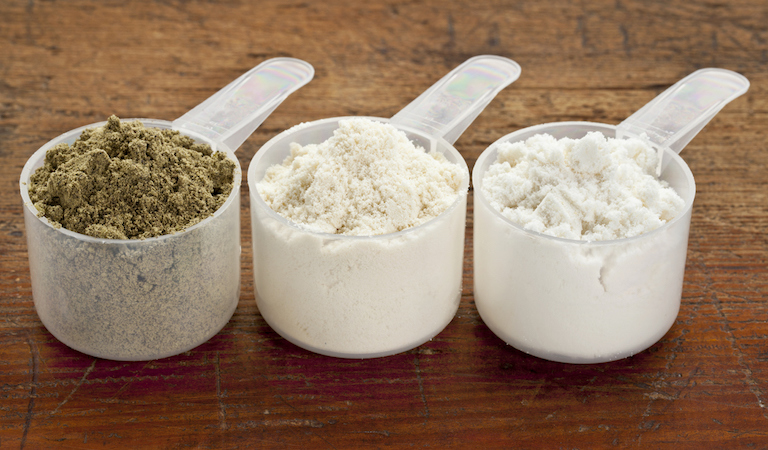What’s the point of taking protein powder? Especially when they’re so expensive…Editor Anna Magee, a long time convert to protein powders talks to Rick Hay, nutritionist and lecturer in weight management
A recent Newsbeat documentary called Addicted to Protein challenged 23 year old dentist Ali to quit protein shakes, which he did, putting on one gram of muscle at the end of it. Surprise. But what was more interesting to me was that when asked if he was going back to his protein powders, he said yes because they were convenient and simple.
Despite what university researches tell me, I know I feel less hungry between meals when I take a quality protein powder
That’s the thing about protein powders, I have always found they do the job of keeping me full between meals without me having to gobble down smelly boiled eggs from Pret or eat chicken breasts after I exercise. Not convenient. Not nice for those around me either. Plenty of academic researchers have told me that a glass of milk would probably do the same thing (if you see the table below that illustrates protein amounts in everyday foods, you will see this isn’t technically true – milk contains about 9 grams of protein a glass and protein powder about 15-25 often with fewer calories). But I don’t like milk, it’s got more fat than most protein powders and the lactose in it sometimes makes my tummy bloated. Unlike the people in the documentary, I’m not a body-builder. in fact, having a smoothie made with vegan protein in the morning, with some fruit such as berries, vegetables such as kale, and a few seeds, nuts or other type of fat has been my go-to breakfast for years and has made me feel healthier and kept my weight stable at 53 kilograms. Despite what university researches tell me, I know I feel less hungry between meals when I take a quality protein powder.
MORE: Need a protein powder for weight loss? These are the ingredients to look for
Here’s what Rick Hay, a nutritionist and lecturer in weight management had to say about why we need protein.
Why we need protein
Keeping hunger at bay Protein foods are thermogenic, which means they take longer to digest than carbohydrate foods, says Hay. This means that a meal containing protein will help keep you fuller for longer between meals and keep blood sugar levels stable, which in turn can help keep cravings at bay.
Muscle recovery Protein nourishes the cells which is essential if you workout as exercise causes tiny tears and strains in the muscles that need replenishing in order to rebuild. This process is essential for toning, not only muscle gains.
Skin, hair and nail health Protein is essential to the formation of keratin and collagen, the building blocks for healthy skin, hair and nails. Trichologists have told me a million times during interviews about hair loss that protein in the diet is absolutely essential to hair thickness and lustre and if yours is falling out, to check your protein intake.
Mental function The amino acids in protein are essential to creating the brain neurotransmitters that keep us feeling well and happy such as serotonin and dopamine.
How much protein do we need a day?
According to the Food Standards Agency people need an average of 55 grams of protein to lead a healthy life. But experts, including Rick Hay say that’s different if you exercise and that active people should take more than that- around 1.2 – 1.5 grams per kilogram of body weight. That means someone like me who weighs 53kg would aim for 65 to 80 grams to meet their daily requirement. Someone who weight 80kg, would aim for 100-120 grams of protein.
Protein in every day foods

Look at the following protein amounts in these everyday foods:
Chicken breast: 30g
Steak: 23g
Tuna: 25g
Egg: 6g
Tofu: 8g
Lentils: 9g
Glass of milk: 8g
If you don’t eat much meat or drink much or any milk or dairy and you exercise, you could be heading for trouble. That for me is where a protein powder becomes, as Ali said, convenient and easy. I like eating mostly vegan and there’s not enough protein in my diet to really help fuel my active lifestyle.

How much protein do protein powders contain?
While a 25 gram serve of whey protein made from milk by-products can contain anywhere from 15g – 25g of protein, the same serve of vegan protein made from things such as hemp, rice, pea and other seed proteins could contain between 12g – 18g of protein.
More is not necessarily better
It’s easy to assume that more protein is better. But according to Rick Hay, ‘It’s better to consume protein foods and powders little and often as the body can’t absorb more than around 15-16 grams of protein at once. When protein measures are much higher you end up with excess calories that could be stored as fat. The big mistake people make when looking for a protein powder is prioritising quantity of protein over quality of protein.’ Regular small and consistent protein intakes spaced out across the day work best.
What to look for in a protein powder
Hay suggests looking for a protein powder without artificial sweeteners, colours or flavours. ‘If it’s a radioactive yellow or pink colour, it may contain artificial colours,’ says Hay. ‘Also, check the label for ingredients such as ‘vanillin’ which is a cheaper, artificial form or the natural flavouring vanilla.’
In vegan proteins, look for a combination of types of protein such as hemp, pea, rice, cranberry, lentil and other seed proteins to ensure you get a good mix of amino acids, which are usually only found in animal proteins, Hay suggests. This is particularly important for vegans. In whey proteins, looks for a combination of whey protein concentrate and isolate for a good amino acid profile.
 Healthista’s new Lean Vegan Diet Protein £24.95 contains 13.8-14.6grams of protein and 87-90 calories a serve. It’s a protein formulated for weight loss made from high quality hemp, rice, pea and sunflower seed proteins. It contains no artificial sweeteners, flavours or colours and is formulated with nutrients such as carnitine and matcha green tea to help increase metabolism, konjac root to help you full and glutamine for muscle recovery. It’s available in whey varieties and creamy vanilla, berry burst and rich chocolate flavours. It’s available to buy online and in Wholefoods stores throughout London.
Healthista’s new Lean Vegan Diet Protein £24.95 contains 13.8-14.6grams of protein and 87-90 calories a serve. It’s a protein formulated for weight loss made from high quality hemp, rice, pea and sunflower seed proteins. It contains no artificial sweeteners, flavours or colours and is formulated with nutrients such as carnitine and matcha green tea to help increase metabolism, konjac root to help you full and glutamine for muscle recovery. It’s available in whey varieties and creamy vanilla, berry burst and rich chocolate flavours. It’s available to buy online and in Wholefoods stores throughout London.
Like this article? Sign up to our newsletter to get more articles like this delivered straight to your inbox.





















































